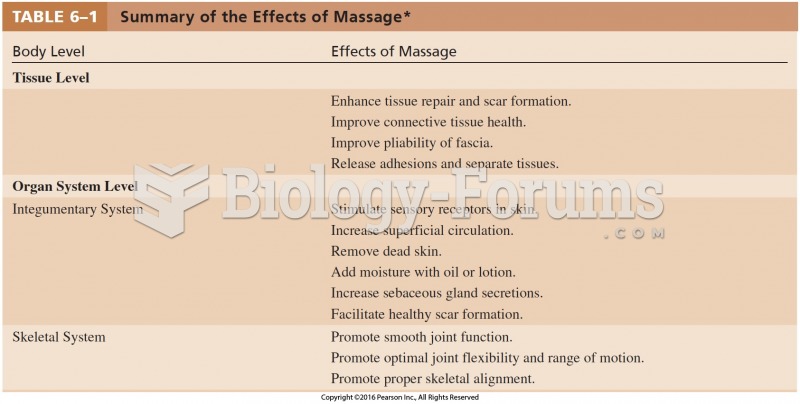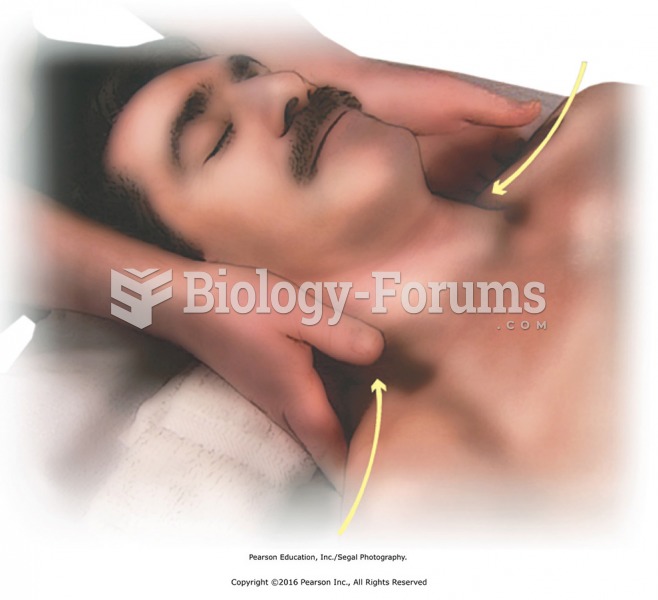|
|
|
Many medications that are used to treat infertility are injected subcutaneously. This is easy to do using the anterior abdomen as the site of injection but avoiding the area directly around the belly button.
Always store hazardous household chemicals in their original containers out of reach of children. These include bleach, paint, strippers and products containing turpentine, garden chemicals, oven cleaners, fondue fuels, nail polish, and nail polish remover.
Cytomegalovirus affects nearly the same amount of newborns every year as Down syndrome.
Urine turns bright yellow if larger than normal amounts of certain substances are consumed; one of these substances is asparagus.
There are over 65,000 known species of protozoa. About 10,000 species are parasitic.
 Nebulizer. The nebulizer converts a liquid medication to a mist that is easily inhaled. A face mask,
Nebulizer. The nebulizer converts a liquid medication to a mist that is easily inhaled. A face mask,
 Lie prone with your head turned to one side. Put your arms out to your sides and bend your elbows at ...
Lie prone with your head turned to one side. Put your arms out to your sides and bend your elbows at ...





